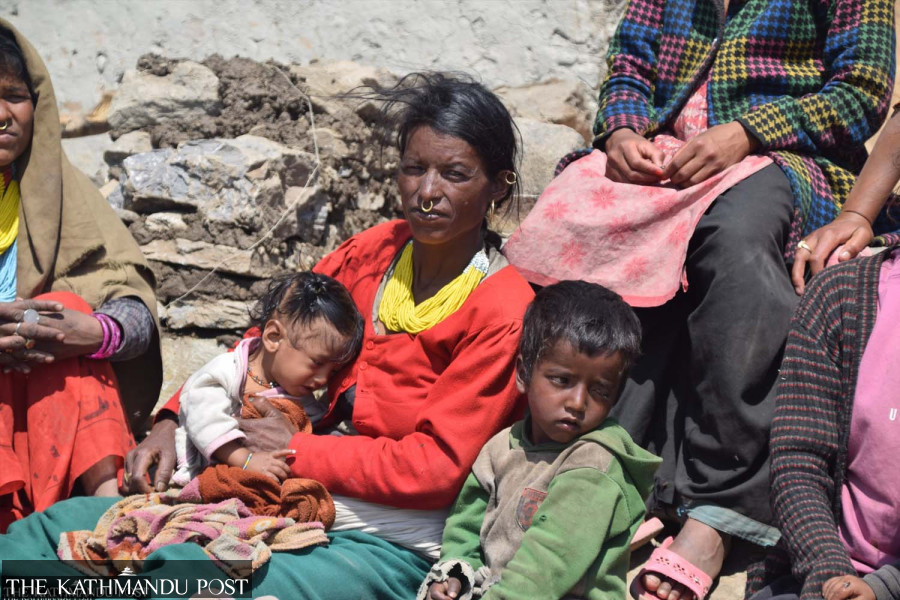National
US to provide funds to carry out a micronutrient survey in Nepal
The study, planned to be carried out within the ongoing fiscal year, was halted indefinitely after the new Trump administration decided to suspend nearly all assistance worldwide.
Post Report
Nepal government had planned a micronutrient survey to take place nationwide within the ongoing fiscal year with the financial assistance of the United States Agency for International Development (USAID). Officials had said the study would determine the status of vitamin A, iron, folic acid, iodine, and zinc and the condition of anaemia among Nepalis.
The plan, however, was suspended indefinitely after the US government decided to freeze nearly all US assistance worldwide after Donald Trump assumed office for his second term in January.
Now, in a turnaround, the US Embassy has said that the country would fund the study, officials at Nepal’s health ministry said.
The Centre for Disease Control and Prevention of the United States will provide technical help for the survey, said Lila Bikram Thapa, chief of the nutrition section at the Family Welfare Division under the Department of Health Services. “Meanwhile, the US government will provide $3.5 million to the United Nations International Children’s Emergency Fund, which will carry out the study,” Thapa said.
It’s been over nine years since such a survey was conducted in the country where malnutrition remains a significant public health issue. The 2016 survey had studied the condition of drinking water, sanitation, child feeding practices, dietary diversity, vitamin A supplementation and deworming, iron supplementation, vitamin A and deworming among women, blood disorder status, nutrition status of adolescent girls, anaemia, iron deficiency, zinc deficiency, salt consumption and iodine level among the Nepalis.
Officials say that the upcoming study will likewise assess the micronutrient status among the representative population. The study report will show outcome indicators of vitamin A supplementation and fortification programmes, which will ultimately help the government and policymakers to formulate policies.
The results of the survey will be crucial for the country’s public health. For instance, Vitamin A supplementation and deworming campaigns carried out twice a year—in April and October every year since 2003—are credited with eliminating night blindness among children. Regular supplementation campaigns are estimated to have reduced deaths among Nepali children under five by 23 percent.
Officials said the study will determine whether or not to continue the ongoing vitamin A programme.
“If the report shows improvement in the vitamin A status of the population, a nationwide campaign may no longer be needed,” Thapa said. “It may instead be administered to those suffering from acute malnutrition and others suffering from some infections.”
A decision on the iodine level in salt may be taken only after a new report is ready. The 2016 report shows more than two-thirds—68 percent—of the population across the country is consuming iodine in excess of the recommended levels, which resulted in high prevalence of hyperthyroidism.
Salt being sold in Nepal fortifies iodine at 50 ppm (parts per million) per kilogramme of salt, which is higher than the recommended dosage. The World Health Organisation, however, recommends iodine concentration at 15 to 40 ppm per kilogramme.
Doctors suspect that the high iodine content in the salt sold in Nepal could be among the reasons for the high prevalence of several non-communicable diseases, including thyroid disorders and hypertension, in the country.
A change in dietary patterns and increased consumption of processed foods (including packaged soups) have resulted in an increased prevalence of non-communicable diseases such as hypertension and cardiovascular diseases, they say.
Lack of iodine in the diet can lead to hypothyroidism, where the thyroid glands produce too little thyroxine, leading to the development of goitres.
Along with the micronutrient survey, multiple other healthcare programmes in the country have been affected by the abrupt aid cut by USAID, a major donor.
Health officials warned that without independent healthcare data, the government would be in the dark about updated health indicators. Lack of data would also affect efforts to track progress on Sustainable Development Goals (SDGs) targets.
SDGs, a follow-up on the Millennium Development Goals (MDGs), aim to end poverty and hunger and all forms of inequality in the world by 2030. Nepal has committed to meeting the goals.
Health officials say the government does not invest in data generation and independent studies, and most officials think it is a waste of national resources. Moreover, the data collected through government channels are also not considered credible by international agencies, as officials can manipulate them to show progress.
Hence, an independent study, such as the one to be carried out by UNICEF, is required for reliable or internationally acceptable data, officials say.




 8.22°C Kathmandu
8.22°C Kathmandu













